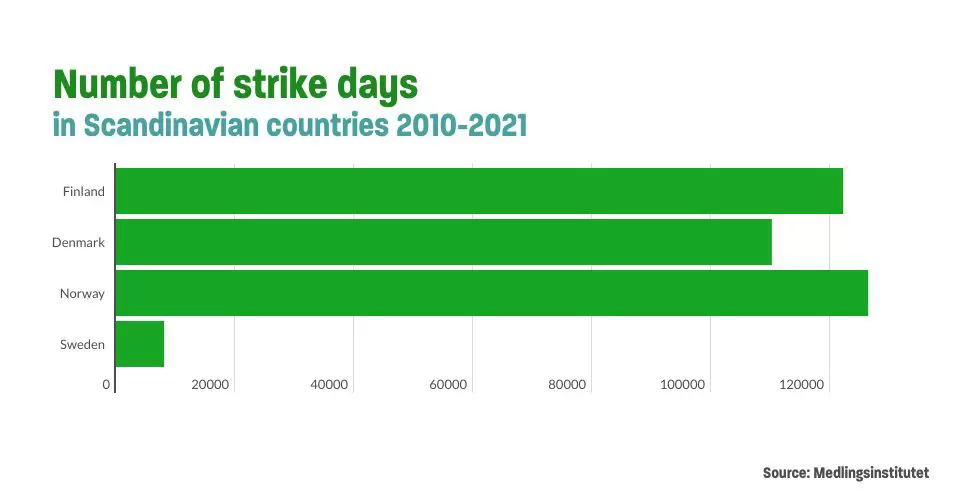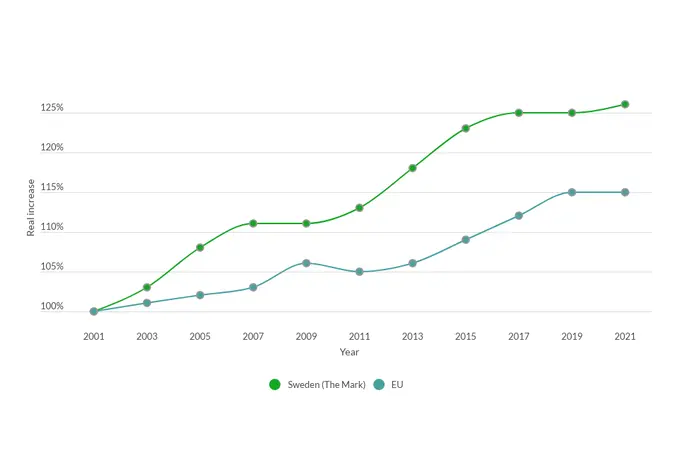A Swedish model for peace
'Many may not fully comprehend how exceptional we are until they sit down with their German or French colleagues who describe the situation in their countries,' says Irene Wennemo to Altinget.
Even when talking to representatives in the Swedish government she has gathered the impression that it is only when they meet their European counterparts that they truly realize the peaceful nature of the Swedish labor market.
'In Sweden, the mere idea of a notice of a strike can prompt employers to seek solutions that the unions would accept. In Germany, they often start with a 'warning strike.' They begin by striking a day before negotiations, just to demonstrate their capabilities. We don't follow that pattern in Sweden,' Irene Wennemo further explains.
With real salary increase
In France and Spain, the multitude of strikes does not seem to have resulted in higher real wages either, which has been the case in Sweden since the introduction of the 'mark' (
Märket
) in collective bargaining.
Read more about "Märket" and real salary increases here.
Altinget spoke with Ola Axelsson, Chief Negotiator of the Swedish Trade Federation, who explains:
'In Sweden, we have favorable employment conditions, and over the past 20 years, we have had higher real wage increases compared to most other European countries.'
There may be several reasons for this, he suggests to Altinget, but fundamentally, the cause lies in the labor market model that relies more on negotiations rather than legislation to address issues.
'This means that we are accustomed to and capable of resolving both significant and challenging issues through negotiations,' he tells Altinget.
Read the full article from Altinget in Swedish here.










